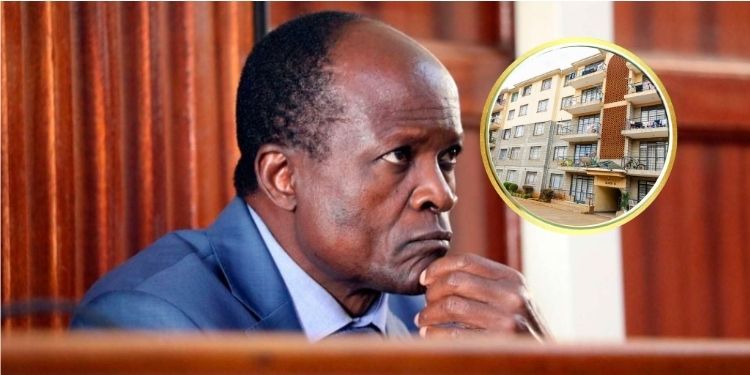In a functioning democracy, public trust is anchored in consistency, transparency, and accountability. When the government announces a policy—particularly one that extracts money from citizens’ pockets—it must be clear, predictable, and purpose-driven. The Kenyan Housing Levy, as initially conceptualized, was packaged as a noble plan to address the country’s urban housing crisis and bridge the gap for low-income earners. However, the evolving regulations, the unclear criteria for beneficiaries, and the now frequent shifts in policy details have turned the levy into a metaphorical moving target—one that risks becoming a textbook case of misuse and institutionalized corruption.
At first, Kenyans were told that the levy was a savings plan. Then, it morphed into a tax. Next, it was recast as a “mandatory contribution” with vague promises of future housing allocations.
Each time the public begins to understand and adjust, the goalposts are shifted—through gazette notices, policy reinterpretations, or legal evasions.
This pattern of shifting narratives is not just frustrating; it is dangerous. It undermines the credibility of public institutions, weakens civic confidence, and opens the door wide for misuse of public funds.
Housing Levy Metamorphosis
A recent pronouncement by President William Ruto that 20% of all constructed houses will be reserved for members of the disciplined forces has further inflamed public frustration.
While the sacrifices of these officers are undeniable, this directive introduces favoritism into what was promised as a universal program.
Also Read: Debunking 7 Common Myths About the Affordable Housing Programme
Reserving a substantial portion for a specific group—especially one already provided with institutional housing—strikes as discriminatory and unjust to the millions of Kenyans in the informal sector and private employment who are equally, if not more, housing-insecure.
It creates the impression of a tiered citizenship, where some are more entitled to public goods than others—at the expense of equity and constitutional fairness.
Moreover, the passing of the Housing Levy regulations without inclusive participation of all stakeholders points to a worrisome and escalating trend within the executive arm of government: the centralization of power and weakening of participatory governance.
Sidestepping public consultation and legislative scrutiny undermines democratic norms and fosters executive impunity.
Such exclusion not only contravenes Article 10 of the Constitution—on public participation and transparency—but also sets a precedent where laws affecting millions are passed without their consent or input.
State Capture Hallmarks
This is not just about housing; it is about governance. The persistent alteration of the levy’s framework—without adequate public participation or transparent audits—suggests that the policy may be serving ulterior motives.
When citizens cannot trace how their money is being used, and when regulations keep changing to close legal gaps or silence critics, what we witness is not reform—it is state capture dressed in the robes of development.
Also Read: KRA Clarifies Deductions for Affordable Housing Levy
We must ask: Who truly benefits from the levy’s shifting structure? Where is the money going? Why are implementation guidelines cloaked in secrecy and buried in bureaucracy? Such opacity breeds corruption. It creates fertile ground for cartels to thrive, for tenderpreneurs to line their pockets, and for political elites to manipulate public resources under the guise of nation-building.
What should be done
The solution is not just judicial pronouncements, but civic vigilance. Kenyans must demand clarity and constitutional fidelity.
Parliament must reclaim its oversight role. And the executive must remember that coercive taxation without tangible, accountable results is not development—it is exploitation.
Changing the rules mid-game, privileging select groups, and ignoring public input betrays the spirit of fairness and good governance.
If the government truly means well, it must halt the manipulation of regulations, subject the Housing Levy to an independent audit, and return to the drawing board with citizens at the center—not just as contributors, but as rights-bearing stakeholders in national progress. Anything less is a betrayal.
This article was written by Dr Luchetu Likaka, a Political and Governance Expert. The views expressed in this opinion piece are the author’s own and do not necessarily reflect our editorial stance.
Follow our WhatsApp Channel and X Account for real-time news updates.







































































